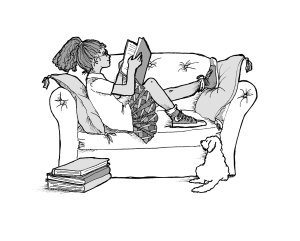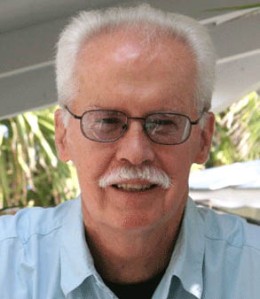Meg Cabot has recently returned to the world of the Princess Diaries with two new books, one for adults and one for middle schoolers. As an (alleged) adult, I can attest that Royal Wedding is a fun read. Princess Mia is all grown up and facing some regular grown-up issues as well as some only-royalty-of-a-small-European-principality issues. And interesting fact about From The Notebooks of a Middle School Princess: Meg illustrated the book — which is copiously illustrated — herself. I talked to Meg about the books, as well as about why she lives in and sometimes writes about Key West. The interview ran in one form on WLRN and in another in The Miami Herald.
I can’t help, while I’m talking about Meg Cabot, to give a shout-out to a couple other series by her that don’t get anywhere near the attention of the Princess Diaries or some of her other books but that I think are worthwhile reads. The first is Insatiable and its sequel, Overbite. They’re vampire books for adults that both riff on and gently satirize Bram Stoker’s original. They’re fun and funny, without being outright satire. The other is the Abandon trilogy, which is a YA series of books based on the Greek myth of Persephone — and set in Key West!
And I recently read the The Fatal Flame, the final volume in Lyndsay Faye’s excellent trilogy about Timothy Wilde, an early New York policeman or copper star. I interviewed Lyndsay for Littoral, the Key West Literary Seminar’s blog, before she came to the 2014 Seminar about crime fiction. When I got hold of this final volume, The Fatal Flame, I read it as slowly as possible, savoring my first immersion. I almost never do that, especially with crime fiction. If you’re interested in historical fiction, historical crime fiction, 19th century New York or any of the above, give these books a try. Can’t wait to see what Lyndsay gets up to next.










